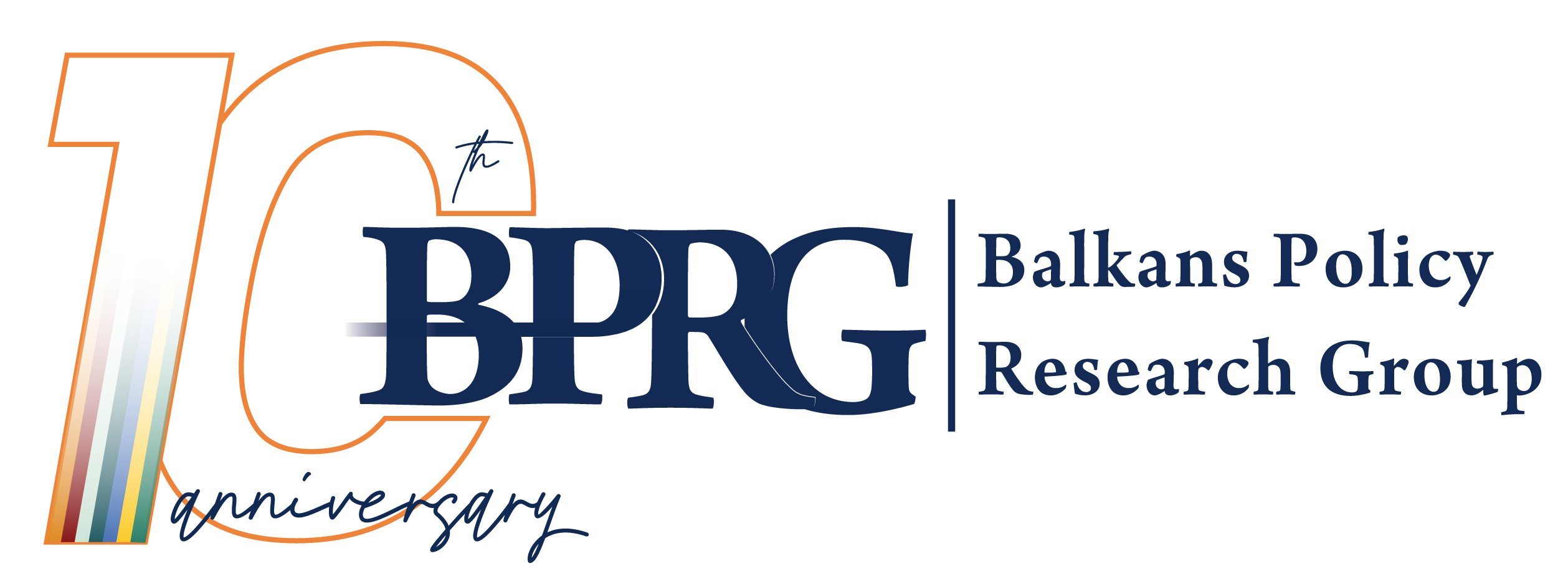3 November 2019 – Balkans Group organised the second round of training, part of the education program for the “Youth in Politics”. This training on new policy areas and skills was organised as a follow-up to the first round of the training which was held in June 2019. The first cohort of participants had a unique opportunity to gain additional knowledge and skills through new modules on Good Governance and Rule of Law, Education Policy, Health and Social Policy and EU Integration.
In addition participants were provided expertise and engaged in interactive activities in developing skills in the policy-cycle, communication with different constituents, conceptualizing and delivering policy briefs, and negotiation and dialogue simulation.
Part of the project goal, Balkans Group brought together members of youth forums from seven political parties in the last legislature in the Kosovo Assembly (LDK, LVV, PSD, AKR, PDK, AAK and NISMA) through an intensive multi-day training programme with interactive lectures and group work. The training encouraged structured debate along academic and practical knowledge learned, while also requiring participants to work in politically diverse groups in order to tackle pragmatic policy problems.
Students engaged in analytical debates on questions of Good Governance and Rule of Law and Education Policy in Kosovo. Through setting the foundations of Good Governance and Rule of Law, the first module required participants to engage with contending definitions of equality, discrimination and rights. In addition to the lecture on key principles of Good Governance and Rule of Law, and their contextual value in Kosovo, youth participants had an opportunity to gain a pragmatic understanding of evidence-based decision-making through practical examples of the policy-making cycle.
On the other hand, with education often being an overlooked aspect of Kosovo’s policy dilemmas, participants were also exposed to the state of education policy in the country. Through examining the policy framework in Kosovo, participants were informed on the major trends linked to the development of educational system. Youth participants then utilized this knowledge acquired in order to advocate for changes in the structure of pre-school, pre-university and university education in Kosovo.
Students were also introduced to key issues related to Health and Social Policy and as a separate topic to the EU Integration processes. In the health policy module, participants were introduced with international and domestic standards related to healthcare through analysis of comparative benchmarks set out by the World Health Organisation (WHO). In order to provide participants with a more practical hands-on experience on Health Policy, they were taught on the underlying principles and approaches in order to design policy briefs targeted at examining policies.
Lastly, youth participants were presented with a complete and process-driven overview of EU Integration. The module offered a sound empirical examination of the overarching EU treaties, dynamics and relationships of key EU institutions and the Stabilisation Association Process (SAP). Having been equipped with key concepts and mechanisms of the EU integration process, participants were then asked to use their newly founded knowledge in a simulated dialogue and negotiation activity.
In addition to the four in-depth modules, Balkans Group also invited two guest speakers to offer youth participants a better understanding of the practical implications of the policy issues they discussed.
With the aim offer insights on Kosovo’s track record of good governance and rule of law reforms, and their status, the Secretary General of the Ministry of Justice and ex-Director of the Office for Strategic Planning at the Prime Minister’s Office, Qemajl Marmullakaj, discussed the strategic processes that have accounted for Kosovo’s progress recently. Mr. Marmullakaj engaged with participants in critical discussions with regard to checks and balances and the separation of powers related to key institutions in Kosovo.
To expose students to a more critical outlook on their own political parties and their development, Dr. Artan Mustafa, renowned professor and expert on Social Policy discussed numerous issues. Dr. Mustafa’s guest lecture sought to offer students a taste of the political dynamics of social policy and the social basis of political conflict. Through Dr. Mustafa’s empirical analysis of the ideological development of political parties in Kosovo and their social grounding, participants were encouraged to develop a more critical outlook on their own political parties.
The “Youth in Politics” training programme is part of the multi-pillar project “Advancing Kosovo’s Institutions, Democratisation, and Regional Cooperation”. The education programme seeks to offer young individuals and members of political parties throughout Kosovo a chance to develop a practical toolkit to help them overcome some of the most critical hurdles to their progressing career. The training program is implemented in cooperation with AUK Training and Development Institute
The project is funded by the Royal Norwegian Embassy in Pristina.

